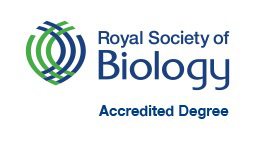Animal Science Code D306 Attend an Open Day Attend an Open Day Clearing places available – 0800 121 40 80
Apply NowYou are viewing this course for September start 2024
Key Facts
D306-
UCAS Tariff
120 - 104
-
Course duration
3 years
Further details on entry requirements
Apply NowOn the Animal Science degree at Aberystwyth University, you will study the applied science relating to domesticated animals, including farm animals, horses and companion animals. As the home of the only Veterinary School in Wales (Aberystwyth School of Veterinary Science), we have excellent facilities to support your studies, including commercially run university farms, an equine teaching centre, and a range of teaching and research laboratories.
Course Overview
Modules September start - 2024
Please note: The modules listed below are those currently intended for delivery during the next academic year and may be subject to change. They are included here to give an indication of how the course is structured.
| Module Name | Module Code | Credit Value |
|---|---|---|
| Cell Biology * | BR17520 | 20 |
| Disease Diagnosis and Control | BR15420 | 20 |
| Domestic Animal Anatomy and Physiology | BR16920 | 20 |
| Genetics, Evolution and Diversity | BR17120 | 20 |
| Introduction to Livestock Production and Science | BR17020 | 20 |
| Skills for Animal, Equine and Veterinary Bioscientists in Equine Exercise Physiology * | BR17220 | 20 |
| Module Name | Module Code | Credit Value |
|---|---|---|
| Animal Breeding: Genetics and Reproduction | BR25220 | 20 |
| Applied Nutrition of Livestock, Horses and Companion Animals * | BR20720 | 20 |
| Immunology | BR22220 | 20 |
| Research Methods * | BR27520 | 20 |
| Veterinary Health | BR27120 | 20 |
Options
| Module Name | Module Code | Credit Value |
|---|---|---|
| Animal Behaviour | BR21620 | 20 |
| Human, Equine and Canine Exercise Physiology and Locomotion | BR25320 | 20 |
| Livestock Production Systems | BR20420 | 20 |
| Module Name | Module Code | Credit Value |
|---|---|---|
| Research Project * | BR36440 | 40 |
| Veterinary Infectious Diseases | BR34120 | 20 |
| Veterinary Pharmacology and Disease Control | BR36820 | 20 |
Options
| Module Name | Module Code | Credit Value |
|---|---|---|
| Advances in Agriculture | BR34820 | 20 |
| Behaviour and Welfare of Domesticated Animals | BR35120 | 20 |
| Behavioural Neurobiology | BR35320 | 20 |
| Equine Nutrition and Pasture Management | BR35720 | 20 |
| Equine Stud Management | BR32520 | 20 |
| Livestock Production Science | BR30820 | 20 |
* Also available partially or entirely through the medium of Welsh
Careers
Teaching & Learning
Student Testimonials
Typical Entry Requirements
UCAS Tariff 120 - 104
A Levels BBB-BCC with B in Biology
GCSE requirements (minimum grade C/4):
English or Welsh, Science and Mathematics
BTEC National Diploma:
DDD-DDM in a specified subject
International Baccalaureate:
30-28 with 5 points in Biology at Higher Level
European Baccalaureate:
75%-65% overall with 7 in Biology
English Language Requirements:
See our Undergraduate English Language Requirements for this course. Pre-sessional English Programmes are also available for students who do not meet our English Language Requirements.
Country Specific Entry Requirements:
International students whose qualification is not listed on this page, can check our Country Specific Entry Requirements for further information.
The University welcomes undergraduate applications from students studying the Access to Higher Education Diploma or T-level qualifications, provided that relevant subject content and learning outcomes are met. We are not able to accept Access to Higher Education Diplomas or T-levels as a general qualification for every undergraduate degree course.
Our inclusive admissions policy values breadth as well as depth of study. Applicants are selected on their own individual merits and offers can vary. If you would like to check the eligibility of your qualifications before submitting an application, please contact the Undergraduate Admissions Office for advice and guidance.

